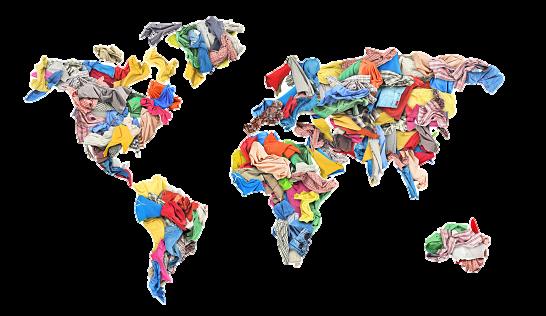
1 minute read
world
fashion through initiatives such as ethical manufacturing, transparency, and eco-conscious materials. The country encourages eco-design, upcycling, and recycling to reduce waste and the environmental impact of the fashion industry.
Sweden: Known for its commitment to sustainable practices, Sweden is at the forefront of the sustainable fashion movement. The country promotes eco-friendly materials, recycling, and ethical production, while supporting local and circular fashion initiatives.
Advertisement
South America (Chile, Argentina and Paraguay) These countries boast some sustainable clothing brands that respect indigenous traditions, use sustainable resources, and have significantly improved the lives of women and the economy –providing jobs for locals who are living in impoverished areas.

The Netherlands leads in sustainable fashion with its emphasis on circularity and innovation. Dutch brands and designers are known for their sustainable practices.
Africa: The Ethical Fashion Initiative (EFI) is a publicprivate partnership of a UN program. Its work spans numerous social enterprises, with one of their most important missions being to support the work of thousands of artisan microproducers from marginalized African communities.

Denmark emphasizes sustainable fashion through its strong focus on eco-friendly materials, fair trade, and ethical production. Copenhagen, in particular, is recognized as a global hub for sustainable fashion, hosting influential events like the Copenhagen Fashion Summit.
Germany is known for its sustainable fashion initiatives, including the use of organic materials, fair trade practices, and eco-friendly production methods. German brands and designers emphasize transparency, ethical sourcing, and the reduction of waste in the fashion industry.
Switzerland places a strong emphasis on sustainability in fashion by promoting ecofriendly practices, ethical manufacturing, and fair trade. The country supports sustainable fashion events and initiatives, fostering a culture of conscious consumption and responsible fashion choices.
Australia: With its vast natural resources and eco-conscious mindset, Australia has become a leader in sustainable fashion. The country emphasizes organic and natural fibers, ethical production, and supports local and indigenous fashion initiatives that promote sustainability.
Finland has embraced sustainable fashion through its commitment to eco-friendly materials, local production, and circular economy principles. Finnish designers and brands prioritize sustainability, incorporating innovative approaches and sustainable business models into their practices.
Key Concepts:
The CIRCULAR ECONOMY: A model of production and consumption, which involves sharing, leasing, reusing, repairing, refurbishing and recycling existing materials and products as long as possible. In this way, the life cycle of products is extended. (Source: European Parliament)
FAIR TRADE: Trade between companies in developed countries and producers in developing countries in which fair prices are paid to the producers.
SUPPLY CHAIN TRANSPARENCY is when companies know where and how their goods are produced and then communicate that knowledge both to internal and external stakeholders, including customers

by Zubeda Landi










